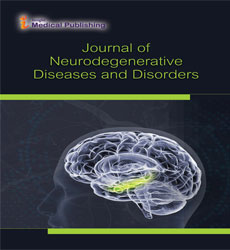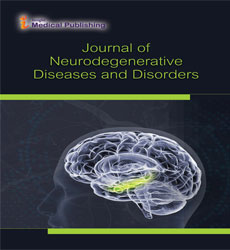The human being that grows old, is becoming a child once again
Abstract
The patients with elzheimers along with the general dementia population reach 50 million people globally and the rise of this number in the future in regards to the average life expentancy is evident. Elzheimers is a condition that is connected to a distortion in the cognitive abilities of the brain, in memory, in thinking, in speech, in orientation and the functioning of the individual. The gradual deterioration of the symptoms of elzheimers creates problems in the family, work and social environment of the individual. When the illness is progressing and approaches its final stages, because the symptoms are getting worse as time goes by, in most cases, the individual cannot take care of himself and must always be by the care of another person, a family member or a carer. The support and training of those individuals must be a priority to be able to respond effectively both for theirs and the patients’ physical and psychological safety. Let us continue with the elzheimers condition. Frequent questions are; What exactly is elzheimers? Is it reversible in some amount through therapy or medication? Is it the outcome of old age? Is it caused by inherited DNA genes? Is it a deadly condition? Are there non- pharmaceutical treatments for the illness? In those questions, we are going to try to give an answer. The illness is an effect of brain dysfunction and it is degenerative and it is responsible for 50-60% of dementia cases in old age.The first symptom is loss of brief memory, and other processes of the brain are affected gradually. Many times symptoms are added such as: Apathy or aggressiveness, sleep and appetite disorders, hyperactivity, persistence in certain patterns of behavior, lifting of suspensions and more…This is happening because in the patients’ brain, pathological proteins such as; neurofibrillary tangles or gerontic plaques that develop the degeneration that creates the loss of brain cells which in turn ,creates the illness. According to Reisbergs’ scale, there are 7 stages of the illness; In the beginning there is mediocre cognitive loss Later on the patient might lose his direction To forget where he has hid objects or money In later stages, he forgets pieces of his own story. Has a problem in managing his finances Cannot execute complex assignments In the penultimate stage disorders appear in sleep or movement Some times they blame their carer for no reason, they speak with fantasy persons, develop ocd symptoms and cannot program anything In the final stage, there is a very serious , there is a complete loss of cognitive abilities and cannot walk As the person’s age is progressing there is a greater risk for developing elzheimers There are elderly that posses a great memory and critical abilities So, since elzheimers is not necessarily caused by old age, what are the other parameters that favour its appearance? The exact causes are not known. There seems to be an inherited predisposition Such as diabetes, hypertension, cholesterol, smoking and long term stress. The inspection of those illnesses appears to be important for the person. Also, a very serious parameter as a defence against the illness is the systematic mental and physical exercise such as; Crossword puzzle, chess, quiz and so on and also a healthy food consumption. It is evident that people with high mental and educational levels and demanding professions that force them to systematically exercise their minds, if they develop elzheimers will be in a later age than other people that are inactive which results in a higher level of elzheimers predisposition. Elzheimers disease can prove fatal in this sense; At first, the illness affects the mental functions Gradually the personality is disorganized and in the final stage other mental and physical systems of the patients’ and that results in the patient confined to bed and usually dies from infections, problems with breathing or thromvoses due to him not being able to move. Let us continue with the question ‘’is there an effective treatment’’?; It seems that at the moment there is no physical therapy, but if the patient is open to take medication that affect the first stages of the illness, the effects are becoming less and less stronger and the person can manage to have a better quality of life. Also, medication exists that can defend against side effects of the illness, such as depression, aggression or negativity. Non pharmaceutical interventions of the illness are addressed for the disease and are globally applied. Such as ergotherapy, logotherapy, dancing, painting and mental empowerment with mental exercise. Many such programs are being used in specialized centers, around the world. Let’s move on in understanding elzheimers and its connection to the emotions of the patient. The patient, in the later stages of the illness might not remember who visited him half an hour ago but can remember the positive emotion he felt after their contact. Also, they might not remember some of neglect of bad behavior but the emotion that he felt, is negative for the patient. So, the stimuli that the patient feels can have a negative effect in his psychological condition. It is happiness, that someone lives a long life and live healthy to an old age. Some though cannot experience old age like that and we wish that sciences will be able to help even more elzheimers and a better quality of life in old age

Open Access Journals
- Aquaculture & Veterinary Science
- Chemistry & Chemical Sciences
- Clinical Sciences
- Engineering
- General Science
- Genetics & Molecular Biology
- Health Care & Nursing
- Immunology & Microbiology
- Materials Science
- Mathematics & Physics
- Medical Sciences
- Neurology & Psychiatry
- Oncology & Cancer Science
- Pharmaceutical Sciences
